With renewable energy systems such as solar and wind power now commonplace, safely harnessing power from beneath the sea could be the next frontier of sustainable energy generation.
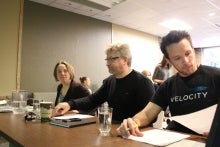
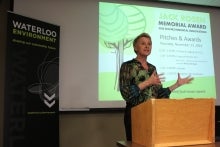
That’s the idea behind The Marine Mill, and entrepreneurial idea from a group of second-year Environment and Business students who recently won the $1,000 grand prize in the The Faculty of Environment’s Jack Rosen competition.
The Marine Mill combines the design of a Dyson Fan with a wind turbine and places it underwater to produce a new form of hydroelectricity. The device has an enclosed turbine and could be placed in an area of the ocean with strong tidal current. The design of the Marine Mill also allows for minimal disruption of marine life, as the turbine is internal, meaning there is little concern about the fish being harmed and plants or corals being damaged.
“We put a lot of time and effort into this,” said Stephanie Houghton, one student who worked on the project. “Hydrokinetic power already exists, but the big concern is harming fish and the marine ecosystem. Our idea doesn’t do that.”
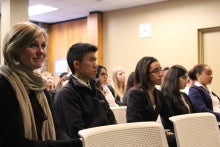
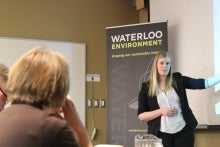
The Marine Mill was chosen for the award by a panel of judges including Tania del Matto, Director of GreenHouse at St. Paul's University College, John Lewis, a researcher in the School of Planning, and Tristan Lehari, Velocity Alpha Mentor and President & CEO at TritonWear.
The competition called on students in the Faculty of Environment to come up with an innovative idea for a product, process, program or service to prevent, mitigate or solve an environmental problem.
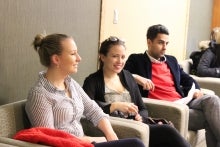
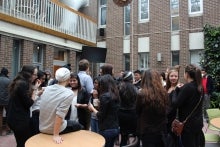
In total, creators of the top eight entries were invited to pitch their idea Dragon’s Den-style for a chance to walk away with the $1,000 Grand Prize and two honourable mentions worth $500 each.
The two honourable mention ideas were EZCEIPT an online system for digitizing consumer receipts thus saving tonnes of paper, bleach (and the hassle of keeping track of paper receipts) and Compact Hydro-Electrical Waste Water Plant (CHEW2P), a system to harness the movement of waste water in office and residential towers to generate hydroelectric energy.
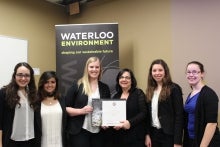
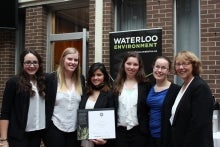
The family of Jack Rosen, a recycling pioneer who helped the City of Kitchener get the world’s first blue box program off the ground, generously sponsors the award.